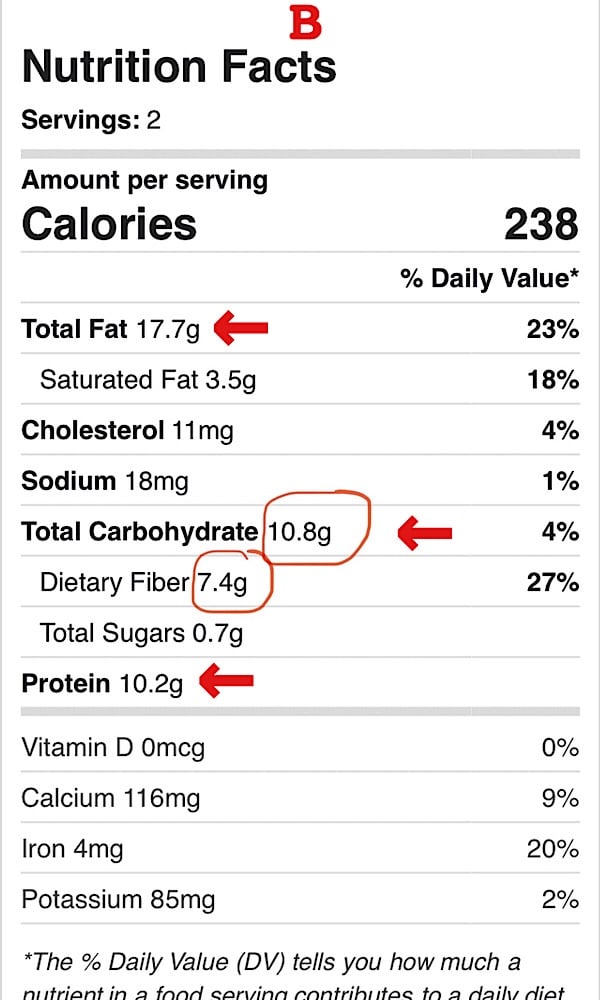Are you trying to lose weight or maintain a healthy lifestyle? You may have heard that you need to watch your carb intake. But how do you know how many carbs you’re actually eating? Calculating the percentage of carbs you consume may seem daunting, but it’s actually simple with the right tools and knowledge.
Do you struggle with keeping track of what you eat? Are you unsure of how many carbs you should be consuming? Do you wish there was an easier way to calculate the percentage of carbs in your meals? These common pain points can make it difficult to achieve your health goals, but with the right approach, you can overcome them.
To calculate the percentage of carbs you ate, you need to know the total number of carbs in your meal or snack and the serving size. Once you have those numbers, you can use a simple formula to calculate the percentage of carbs. The formula is: (total carbs / serving size) x 100. This will give you the percentage of carbs in that particular food item.
Understanding how to calculate the percentage of carbs you ate is essential for monitoring your carb intake. By tracking your carb intake, you can make better food choices and maintain a healthy diet. To make it easier, you can use a food diary or mobile app to keep track of what you eat and the carb content of the foods you consume.
How to Calculate Percentage of Carbs U Ate: A Personal Experience
As someone who struggled with maintaining a healthy diet for years, I understand the importance of calculating the percentage of carbs I ate. Before I started tracking my carb intake, I often ate carb-heavy meals without realizing it. But once I started to track my carb intake, I became more mindful of what I was putting in my body. Now, I have a better understanding of how to make healthier food choices and stay within my carb limit.
Tools for Calculating Your Carb Intake
There are many tools available to help you calculate the percentage of carbs you consumed. One popular tool is a carb tracker app, which can help you monitor your carb intake and make healthier food choices. Some popular carb tracker apps include MyFitnessPal and Carb Manager.
Using a Food Scale
Another useful tool for calculating your carb intake is a food scale. A food scale can help you measure your food portion sizes more accurately and determine the total number of carbs in your meal. This can be especially helpful if you’re trying to maintain a strict carb limit.
Reading Food Labels
Reading food labels is another important skill to master if you want to calculate the percentage of carbs in your meals. Most packaged foods have a nutrition label that includes the total number of carbs per serving. By reading the label and understanding the serving size, you can calculate the percentage of carbs in that food item.
Benefits of Tracking Your Carb Intake
Tracking your carb intake can have many benefits, including weight loss, better blood sugar control, and improved digestion. By monitoring your carb intake, you can also make more informed food choices and develop a better understanding of how different foods affect your body.
Question and Answer
Q: How many carbs should I eat per day?
A: The recommended daily carb intake varies depending on your goals and individual needs. Generally, consuming 45–65% of your total daily calorie intake from carbs is recommended for a healthy diet.
Q: Can I still eat carbs and lose weight?
A: Yes, you can still eat carbs and lose weight. The key is to consume complex carbs, like whole grains and vegetables, and limit your intake of simple carbs, like sugar and refined flour. Tracking your carb intake can also help you make healthier food choices and stay within your carb limit.
Q: Is it important to balance my carb intake with protein and fat?
A: Yes, it’s important to consume a balance of carbs, protein, and fat to maintain a healthy diet. Consuming too many carbs and not enough protein and fat can lead to blood sugar imbalances and other health issues.
Q: How can I make sure I’m getting enough fiber in my diet?
A: Including fiber-rich foods, like whole grains, fruits, and vegetables, in your diet can help ensure you’re getting enough fiber. You can also track your fiber intake using a food diary or mobile app and aim to consume the recommended daily intake of fiber, which is 25 grams for women and 38 grams for men.
Conclusion of how to calculate percentage of carbs u ate
Knowing how to calculate the percentage of carbs you ate is an important skill for maintaining a healthy diet. By understanding the basics of carb counting and using the right tools and resources, you can make better food choices and achieve your health goals.
Gallery
How To Calculate Net Carbs – The Low Carb Muse

Photo Credit by: bing.com / carbs 4g 8g
Calculate Percentages In Your Head – YouTube

Photo Credit by: bing.com / calculate percentages head
How Many Carbs Should You Eat A Day To Lose Weight? [Aug 2021]
![How Many Carbs Should You Eat a Day to Lose Weight? [Aug 2021]](https://blog.nasm.org/hubfs/image-png-Aug-06-2021-09-40-12-75-PM.png)
Photo Credit by: bing.com / carbs lose calculating
How To Calculate Net Carbs (+ Carb Calculator) | Wholesome Yum

Photo Credit by: bing.com / carbs calculator allulose wholesomeyum
How To Calculate Net Carbs (+ Carb Calculator) | Wholesome Yum

Photo Credit by: bing.com / calculate wholesomeyum